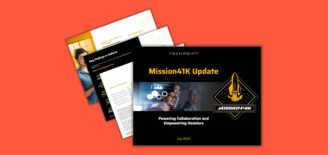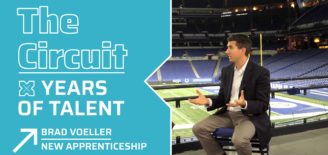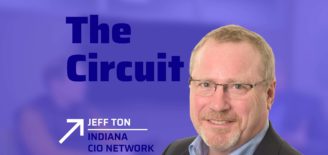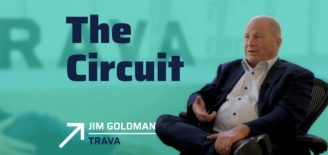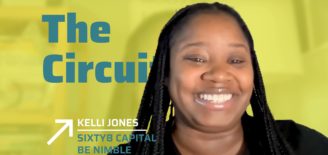The Business Podcasting Movement: Over-hyped? Yes and No.
“Hey, do you want to be a guest on my podcast?”
This is becoming a familiar conversion to many of us in the marketing and tech space. Podcasting is enjoying renaissance and podcasts on just about any topic imaginable are popping up everywhere. You can find podcasts on topics like TV shows, hobbies, movies, politics, conspiracy theories and all sorts of niche areas.
While many people are devouring podcasts for entertainment, there is a whole segment of podcasting that centers around business topics. Sales, marketing, productivity, leadership and other business concepts are discussed on thousands of podcasts every day.
According to Edison Research, podcast listening grew 23% between 2015 and 2016 and 21% of Americans ages 12 and up have listened to a podcast in the past month.
While podcasts are often seen as pure entertainment by many, can this medium be used as a business marketing tool?
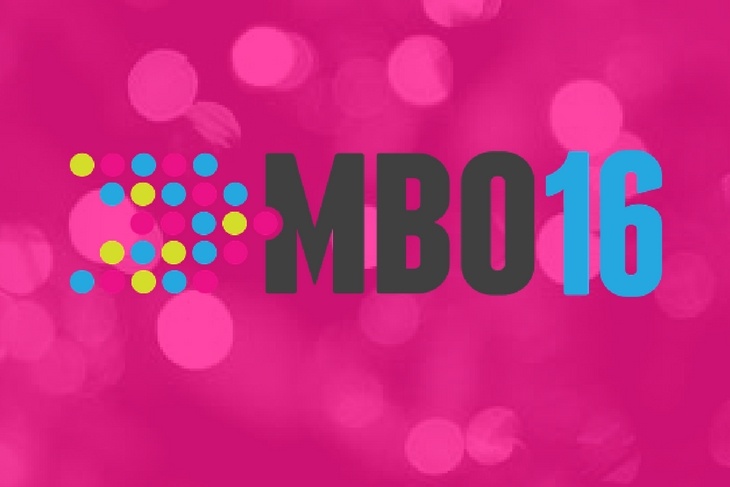
History of Podcasting
While there have been many methods of storing and listening to audio files dating back decades, few would argue that podcasting entered the mainstream in 2005 when Apple launched the podcast directory on iTunes. With thousands of podcasts aggregated into one easy-to-use directory and Apple’s clout behind it, podcasts were now mainstream.
Since it was new and shiny, podcasts were popular for a while. Some prominent podcasters during time include President George W. Bush who published his weekly radio address as a podcast.
Like many new and shiny technologies, podcasts eventually had their day in the sun and stopped being exciting after a while. People kept listening but the marketing and tech world moved on to other shiny things and podcasting sort of faded into the background of the conversation.
Part of the reason that the momentum behind podcasts stalled a bit is that the user interface for accessing them left something to be desired. The mobile phones at the time were not set up to make it easy to quickly and easily subscribe and listen to podcasts.
That changed when Apple updated the iPhone in 2013 with a newly updated native Podcasts app that eliminated most of the friction around getting podcasts. Granted, Apple’s Podcasts App was kind of crappy at the time but it did get the ball rolling (again). Since then, Apple’s app and others have improved and today any mobile device has built in access to finding and subscribing to podcasts in just a few minutes. Following suit, Google Play also now features a podcast directory.
With the updates in technology combined with the natural cycle of marketing and technology, podcasting was now “cool” again.
Why Podcasting is Popular
Podcasts appeal to our desire for convenience as well as our obsession with multi-tasking. We are used to reading articles and books but this requires some concentration. We watch videos but this also requires attention. It’s difficult (not to mention unsafe) to view either while driving. Podcasts on the other hand are easy to focus on while driving, doing laundry, writing proposals, working out, walking around or doing really anything else.
We’re used to listening to the radio during the commute but podcasts are the next evolution in on-demand content because of the level of control that the listener has. The radio forces us into a specific agenda that is out of our control. Sure we can change the station, but it’s on to the next agenda that is also out of our control. Podcasts give us the control we want. Just like Hulu and Netflix are disrupting TV, podcasts are disrupting radio.
Millions of people no longer subscribe to cable or have a TV antenna. Instead, they watch the shows they want to watch when they want to watch them via streaming services. Podcasts are the audio counterpart to Netflix. A vast directory of content that you choose to listen to on your terms and on your schedule.
The Role of Business Podcasts
So what role does podcasting play in business? Basically, podcasting is the audio complement to blogging. Written content released as in-depth polished content is called a book. Written content released as more specific bite-sized chunks is called a blog (a collection of articles). Podcasts are the audio version of a blog. They are not as polished and story-driven as an audiobook, but are instead specific and episodic like articles. This makes podcasts ideal for content marketing.
While there are plenty of business podcasts that are in it to grow a huge following and get sponsorships, there is a growing place for the modest community-focused podcast that is targeted toward your specific audience.
One example of this is our own SpinRadio. We publish a digital marketing and sales podcast every week that has a three-part agenda consisting of sharing digital marketing news from the week, a deep dive topic in which we teach a concept, and some random stuff at the end. We keep it fun and light and try to make digital marketing content entertaining as well as useful. Our goal is not to grow into a huge mega-popular show but rather to serve our clients with information that is useful to them.
Some other great podcasts that follow a similar concept include Obsessed with Design from MilesHerndon, Edge of the Web Radio from Site Strategics and The Marketing Technology Blog Podcast from DK New Media. These are digital marketing podcast that are published by digital marketing agencies for the purpose of serving their clients and their audience.
Health care is also catching the podcasting bug. The IU Health Podcast covers healthy living tips including information on exercise, breastfeeding and heart health. Angie’s List produces a Chat with the Experts Podcast to help their audience with home improvement tips.
Podcasts and Your Marketing Strategy
So can a business podcast play a role in your marketing strategy? Absolutely, if you look beyond the hype. Much of time, a podcast is viewed as something that is meant to be a highly-produced “show” and has a high barrier to entry which keeps many businesses from adopting the medium. While much of the podcast content out there is set up this way, this is not the only way to podcast.
You don’t need to set out to produce a popular show and try to earn thousands of listeners. In fact, that would probably not be a good investment of resources for your company. You don’t need to be the next Serial to have a successful podcast. You can add value to your marketing plan with a constituent-focused podcast that delivers something useful to your target market.
There are many ways that this type of content can play a part in your marketing strategy. At a minimum, the fact that you speak on topics in your area of expertise lends credibility to your brand. Going a step further, you can start to introduce calls to action in your podcast. Lead people to landing pages and offers on your website to deepen the relationship and generate leads. Invite referral partners on your show to take networking to the next level and get in front of new audiences.
It’s important to follow the same guidelines on your podcast as you would on your blog. Teach, don’t sell. Keep your content focused on useful information that benefits your audience.
Invest in Podcasting
If you are considering launching a podcast for your business, keep one thing in mind: it’s a long-term investment. It’s unlikely that you’ll see results overnight. It may take a year or more to start to see your audience grow. Promote your podcast with social media advertising and other outreach efforts. Give it time and stick with it (and publish at least once a week).
It may take time and effort with little reward at first, but if you stick with it and keep learning, your podcast may become a significant and beneficial part of your digital marketing strategy.
Want to learn the logistics behind getting your podcast up and running? Come to MBO 2016 and get the scoop as Abby and I present “Why a Company Podcast is the Missing Component of your Inbound Marketing Program.”
 Michael Reynolds is President/CEO of SpinWeb – a digital agency located in Indianapolis, IN. As an Inbound Marketing Certified Professional, Michael regularly blogs, publishes educational industry content, and speaks at conferences around the country covering topics like business strategies, digital marketing, and technology.
Michael Reynolds is President/CEO of SpinWeb – a digital agency located in Indianapolis, IN. As an Inbound Marketing Certified Professional, Michael regularly blogs, publishes educational industry content, and speaks at conferences around the country covering topics like business strategies, digital marketing, and technology.
In addition to his obsession with marketing and technology, Michael devotes part of his brain to ballroom dancing and classical music. Prior to earning degrees in both Cello Performance and Management Information Systems from Ball State University, Michael studied the cello with a real live Klingon and still plays regularly in church and the occasional chamber music gig.
Michael is firmly in defense of using only one space after a period.
Michael enjoys playing tennis, cycling short distances very slowly on the Monon Trail (usually on the way to Bazbeaux Pizza), traveling with his beautiful wife, and eating lots of sushi.




